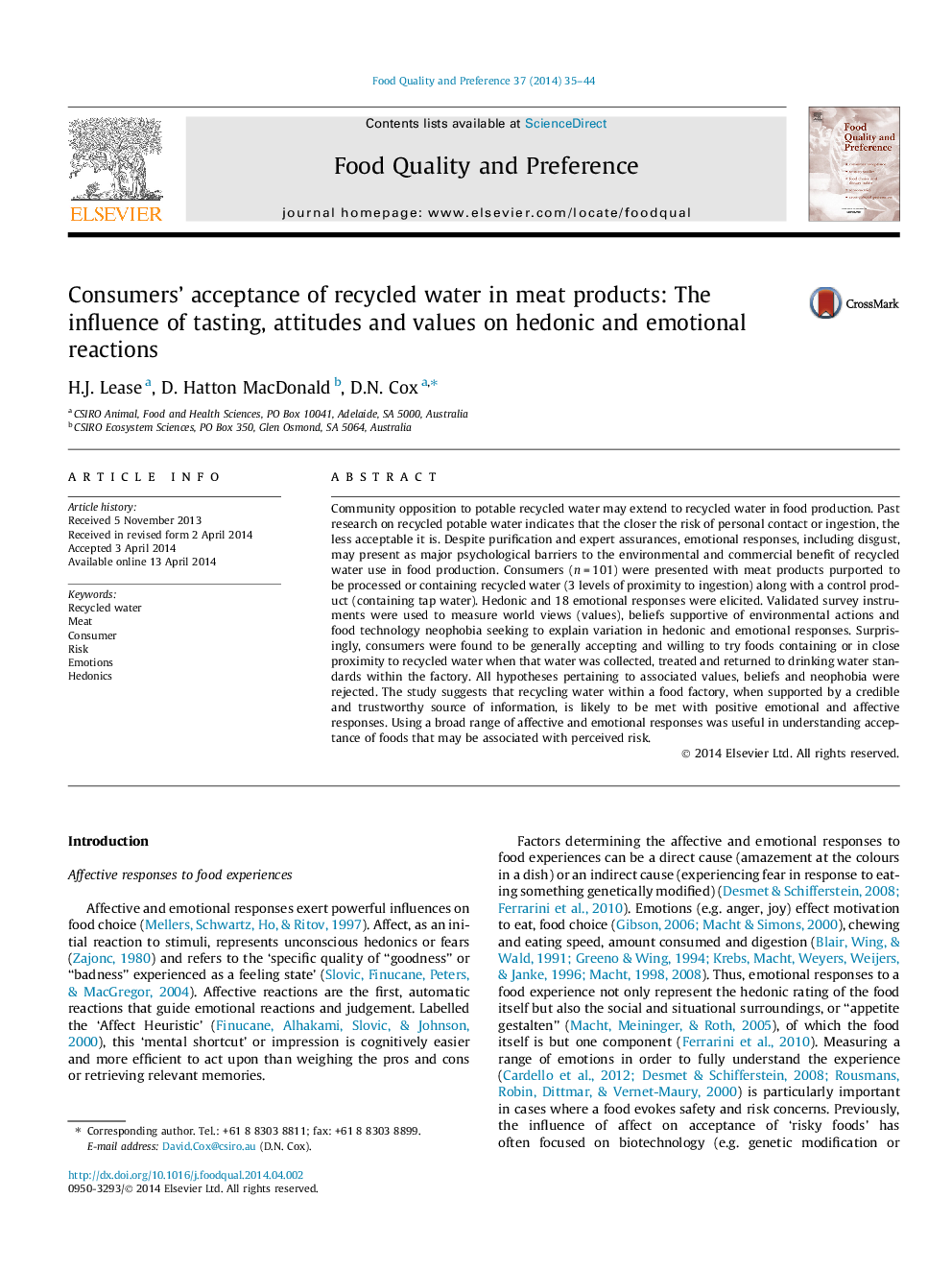| Article ID | Journal | Published Year | Pages | File Type |
|---|---|---|---|---|
| 4317202 | Food Quality and Preference | 2014 | 10 Pages |
•Recycled water in food production could benefit environmental and commercial interests.•However possible consumer rejection may damage brands.•Hedonic and emotional responses to meatballs purported to be made with recycled water were tested.•Acceptance and positive emotional responses to tasting were observed.•Affective and emotional responses aid understanding of foods associated with perceived risk.
Community opposition to potable recycled water may extend to recycled water in food production. Past research on recycled potable water indicates that the closer the risk of personal contact or ingestion, the less acceptable it is. Despite purification and expert assurances, emotional responses, including disgust, may present as major psychological barriers to the environmental and commercial benefit of recycled water use in food production. Consumers (n = 101) were presented with meat products purported to be processed or containing recycled water (3 levels of proximity to ingestion) along with a control product (containing tap water). Hedonic and 18 emotional responses were elicited. Validated survey instruments were used to measure world views (values), beliefs supportive of environmental actions and food technology neophobia seeking to explain variation in hedonic and emotional responses. Surprisingly, consumers were found to be generally accepting and willing to try foods containing or in close proximity to recycled water when that water was collected, treated and returned to drinking water standards within the factory. All hypotheses pertaining to associated values, beliefs and neophobia were rejected. The study suggests that recycling water within a food factory, when supported by a credible and trustworthy source of information, is likely to be met with positive emotional and affective responses. Using a broad range of affective and emotional responses was useful in understanding acceptance of foods that may be associated with perceived risk.
